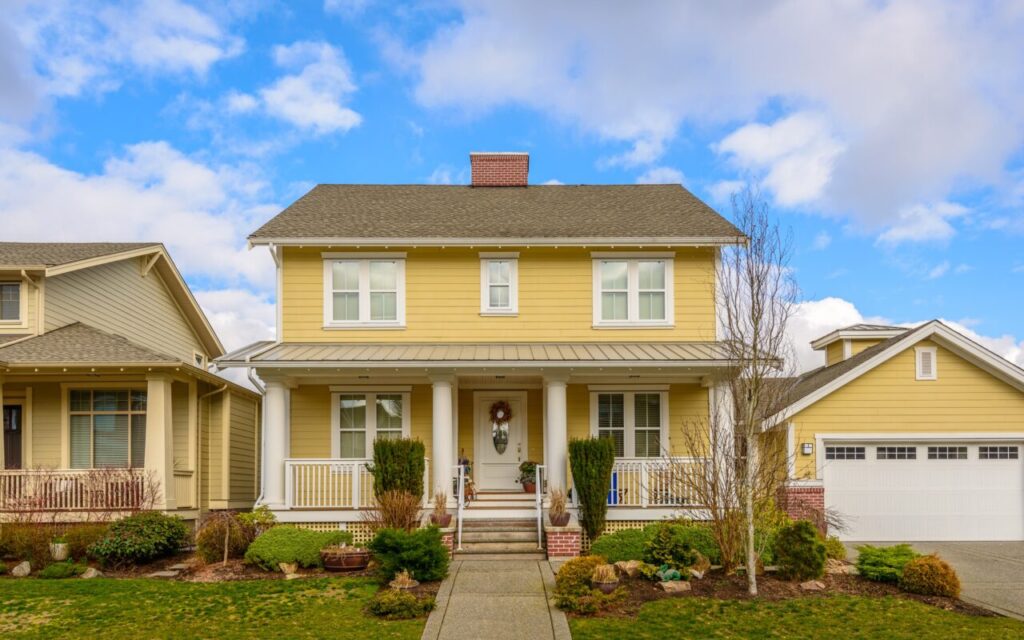As you delve into the world of real estate investments, it pays to know where you can save money to help your bottom line. Whether you’re planning to become a landlord with rental properties, a property developer, or a home-flipper, using a 1031 exchange can be a beneficial way to build your wealth.
Like other tax breaks, there are several qualifications to consider and mistakes to avoid to make it work for you. Read on to find out what a 1031 exchange is and how you can use it as a real estate investor.
What is a 1031 exchange?
Named for Internal Revenue Service Code 1031, a 1031 exchange is a tax break that allows savvy investors to defer paying taxes on property sales by purchasing another like-kind property with the profits. Basically, by reinvesting the profit, there is no income to tax.
As long as you continue to buy new properties with your profits, you can delay paying taxes on your profit indefinitely. That means if you buy and sell a property at 30, you won’t be taxed for the income until you complete your final investment transaction, regardless of your age.
Like most tax codes, the 1031 exchange requires knowing specifics about real estate income, such as capital gains and depreciation value. It helps to work with an expert on the code when you are beginning as an investor. Consult a leading expert professional from one of the top 1031 exchange companies out there to help you find out if a 1031 will work for you.
When do you want a 1031 exchange?
As a real estate investor, your primary goal in buying and selling property is to make more money. There are several reasons why you want to consider using a 1031 exchange.
You may want to sell a rental home if you are not earning as much rental income as another property would. You might also want to sell it if you have discovered you don’t enjoy being a landlord, and you would rather try your hand at flipping houses or developing land. Some investors choose to consolidate their real estate portfolio by selling multiple properties and rolling the profits into one larger investment opportunity.
Whatever your reasons, a 1031 exchange can help you maximize your earning potential over time.
What are the rules and qualifications for buying a replacement property?
One of the biggest factors that come into play when using a 1031 exchange is the replacement property you purchase. The IRS defines eligible properties as “like kind.” There is flexibility in what qualifies as like kind, but you must also meet set requirements to be eligible.
Your sale must include direct real estate. That can mean a parcel of land, a rental property, or a home that has been updated. You could sell any of these types of real estate and purchase one of the other.
For example, say you flip a home. You could reinvest your profit in another home to flip or an empty plot of land or a rental property. All would qualify for a 1031 exchange. However, real estate transactions that don’t qualify for 1031 exchange include profits from a real estate investment group (REIG), real estate investment trust (REIT), or crowdfunding platform.
In addition to choosing a like-kind property, your new property should be of equal or greater value to the one you’ve sold. Speaking of selling, before listing your property, find out whether selling the home yourself, also known as FSBO, or hiring a realtor will help you secure the best deal for your property.
What is the timeline for a 1031 exchange?
To satisfy the requirements for a 1031 exchange, it’s important to meet the code’s timeline for identifying and purchasing property. This will help you receive the full benefits of the tax break and keep you from ending up in the doghouse with the IRS.
First, you must identify a replacement property within 45 days of selling your initial property. Then, you must complete the purchase of the property within 180 days.
To ensure you meet the time guidelines, look for new investment opportunities before you sell any of your properties. Research your local real estate markets to find out how long properties typically spend on the market before selling.
Tips for Buying a Home in a Seller’s Market


